Doyle Reeves makes the most of life after two successful heart transplants
By Loretta Fulton
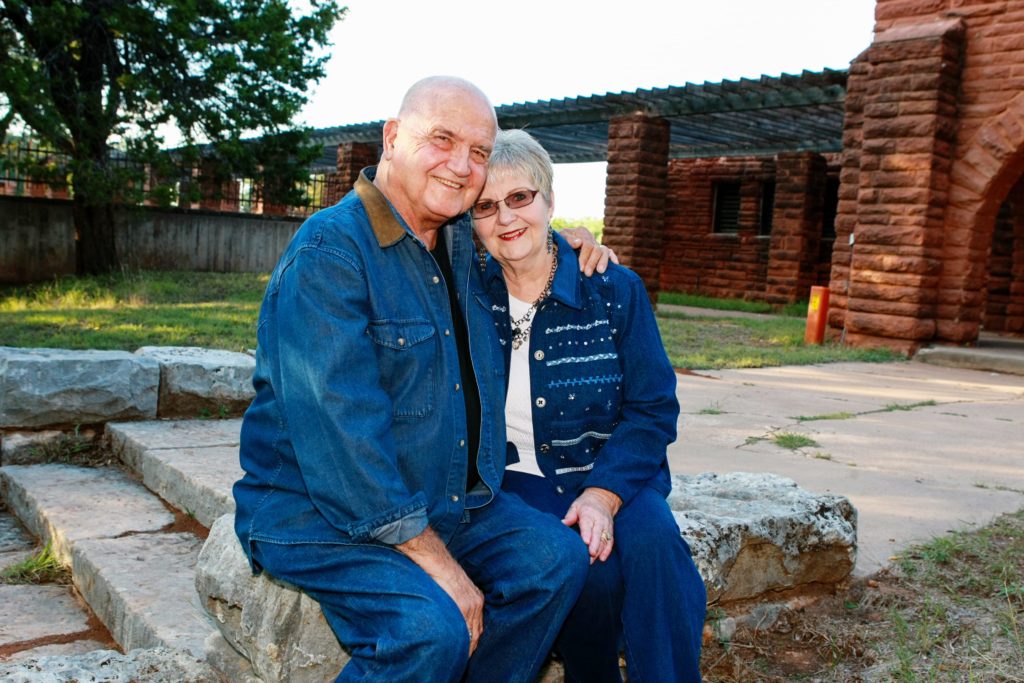
Spending a hot summer in a skilled nursing facility as the result of a broken hip would be enough to make most people at least ask, “Why me?”
But Doyle Reeves is far from most people. If he had started asking “Why me?” way back when his troubles started, that’s all he would have time for. A broken hip, being pushed around in a wheelchair, and undergoing strenuous rehab every day is a walk in the park to Doyle Reeves, 75. In fact, he became somewhat of a novelty at the nursing facility at Wesley Court Senior Living.
“They wanted to see this guy who had two transplants,” Doyle said.
Yes, one heart transplant wasn’t enough for Doyle Reeves. He had to do it twice. The second one came in May 2006, nearly 18 years after the first one. The second one was even more of a surprise than the first. It came after the doctor popped a question following tests.
“Would you like to have another transplant?” was the question.
“You mean I can?” was Doyle’s answer.
He could and he did. And if you’re wondering, the second one “was dull” compared to the first one. But Doyle didn’t know it would be that way when he agreed to have a second heart transplant. The way he saw it, he didn’t have a choice. “The alternative was to die,” he said.
Following the first transplant in 1988, Doyle was in isolation for three weeks, followed by aggressive treatment for organ rejections and other problems. The second time around was much better, with no rejections. “They threw him out after a week,” his wife, Marilynn, said.
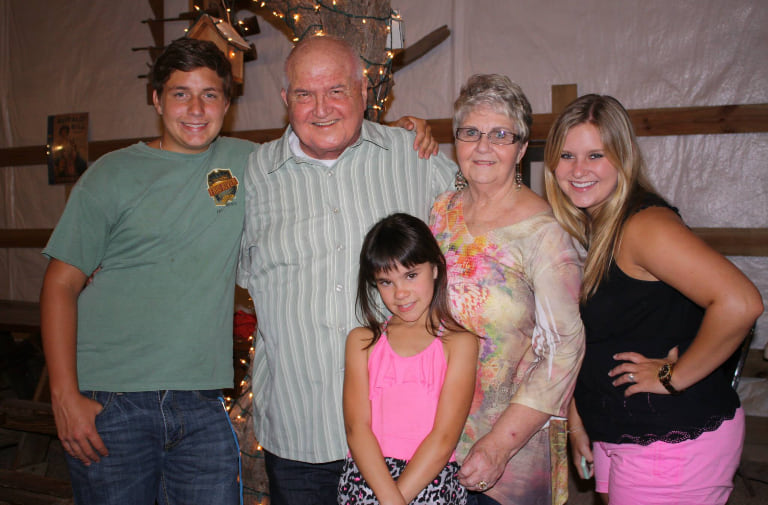
Through all of it – a near death due to heart failure, a heart attack, blood clots, two transplants, a broken hip and a variety of other ailments – Doyle Reeves has been buoyed by healthcare professionals, his wife and two daughters, Shila Reeves and Kayla Stephenson, and a deep faith.
“We’ve seen many miracles through this,” Marilynn said.
Take One
The first miracle occurred on Sept. 5, 1988, Labor Day. Doyle was a pharmacist at Hendrick Medical Center and on the previous Friday he had had a physical examination. He was 45 at the time and had noticed that he was tiring easily.
“I just thought I was really out of shape,” he said.
On Friday, he got a clean bill of health. On Monday, he was “technically dead.”
Marilynn discovered him in bed “stiff, blue and not breathing.” He had gone into a state called decorticate posturing, in which the legs are stiff, the arms bent inward and fists clenched. It is a sign of brain damage. An electrocardiogram performed by emergency personnel showed a flatline, no sign of brain activity.
It was during that time, Doyle recalled later, that he experienced a strange episode. He could see from above two pastors standing in a doorway while the paramedics worked on him. He recalled a voice asking01 if Doyle wanted “to stay or go with him.”
Doyle wanted to stay for his wife and daughters. He wasn’t done with living, although all the signs said he was. With medications, CPR so aggressive Doyle suffered broken ribs, and electric shock, the paramedics got Doyle’s heart beating again enough to keep him alive and to the hospital.
The following day, Tuesday, Sept. 6, he blinked, shook his head and smiled in answer to questions. Still, the doctors said he had “10 minutes to three weeks to live.”
Twenty-two days later he was at Baylor University Medical Center in Dallas, where he would become the hospital’s 29th heart transplant recipient.
There, another miracle occurred. Doyle’s insurance didn’t cover a heart transplant but since he was an employee of Hendrick Medical Center, a sister Baptist facility to Baylor, arrangements were made for the transplant – about $1 million worth of arrangements.
Due to his rapidly deteriorating condition, Doyle was placed at the top of the list for a new heart, on the condition that his brain function continued to improve and that he would be able to take care of himself afterward. Late on Sept. 26, a 21-year-old motorcycle rider had a fatal accident. The hospital waited for his parents to arrive before pronouncing him dead and proceeding with the heart transplant. He was the same age as the Reeves’ older daughter, Shila. The heart wasn’t a good match, the doctors said, but it was Doyle’s best chance.
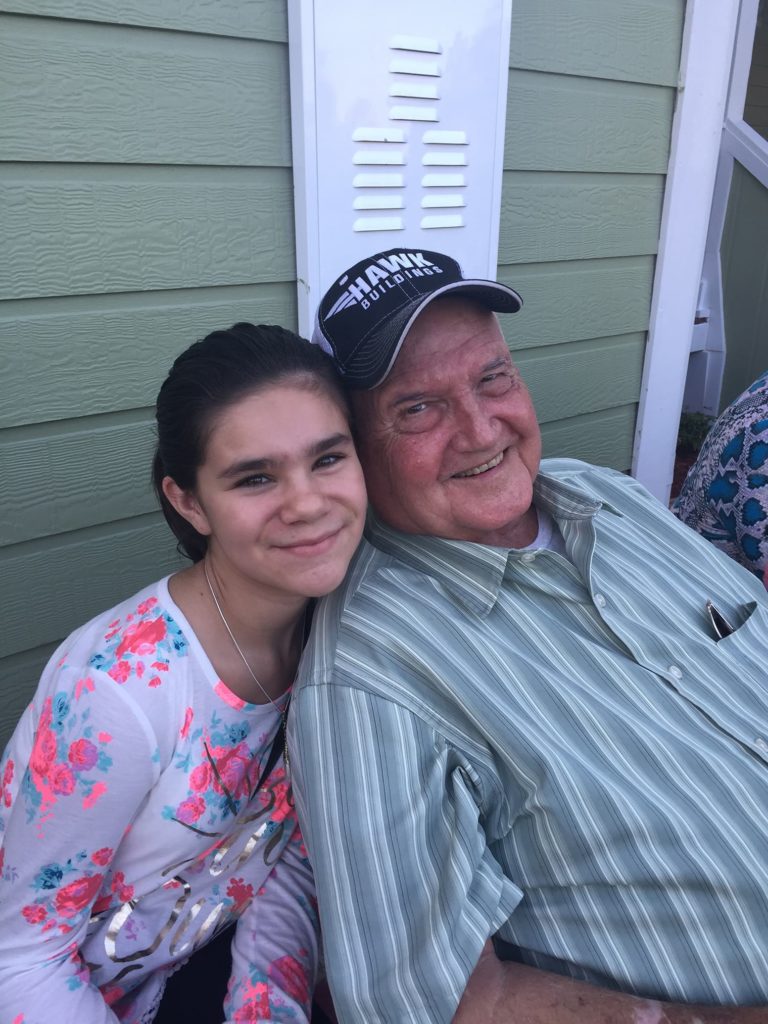
He was wheeled into surgery at 6:30 a.m. on Sept. 27 The operation began at 9. The heart was in at 11. At 1:30 p.m., Doyle was moved to the intensive care unit. Through the glass, he gave a thumbs up to his family. What followed was frightening, but also sobering for the entire family. A 21-year-old man had died and now Doyle was given a chance to live because of his heart. The family understood that the young man was going to die whether Doyle received the heart or not. Still, the difficult situation caused soul-searching.
“They are willing to give a gift of life to you,” Marilynn said.
Besides the emotional and spiritual dimensions of the ordeal, Doyle faced a terrifying physical situation. On Oct. 14, he left the hospital to stay at Twice Blessed House, a facility for transplant patients. He began rehab, but his body tried to reject the new heart. A regimen of high-dose steroids was started. Eventually, he was released and sent home.
But just before Thanksgiving, Doyle was readmitted to Baylor because of viruses. After once again being treated and sent home, Doyle again experienced rejection of the heart. He was readmitted to Baylor in December and was given a trial drug, OKT-3, that was so strong it caused severe vomiting – a good thing, in this case.
“I felt like I was shaking the hospital, my body was shaking so bad,” Doyle said.
The drug worked and Doyle continued to improve. By February 1989, Doyle was back at work in the pharmacy at Hendrick Medical Center.
“They told him he could do anything he wanted besides skydive and scuba dive,” Marilynn said.
That was OK with Doyle. He was a fly fisherman, not an adventurer.
Take Two
Seventeen years passed with with no major issues involving Doyle’s heart. In October 2005 Doyle was practicing his fly casting in the gym at South Side Baptist Church in preparation for a trip to New Mexico when he experienced what he thought was a bad case of indigestion. He wasn’t about to let the fly casting practice go to waste. “I went fishing for a week,” he said.
Back home from the trip, Doyle was leveling the family’s travel trailer when he experienced a severe pain in his left leg. Marilynn and a daughter got him to the hospital. Doctors were able to dissolve a blood clot and save his leg, but discovered that he had suffered a heart attack. It was back to Baylor University Medical Center in Dallas, where Doyle was attached to a bag of IV medicine 24 hours a day to stimulate his heart. About six weeks passed when the doctor popped the question Doyle never could have imagined: “Would you like to have another transplant?”
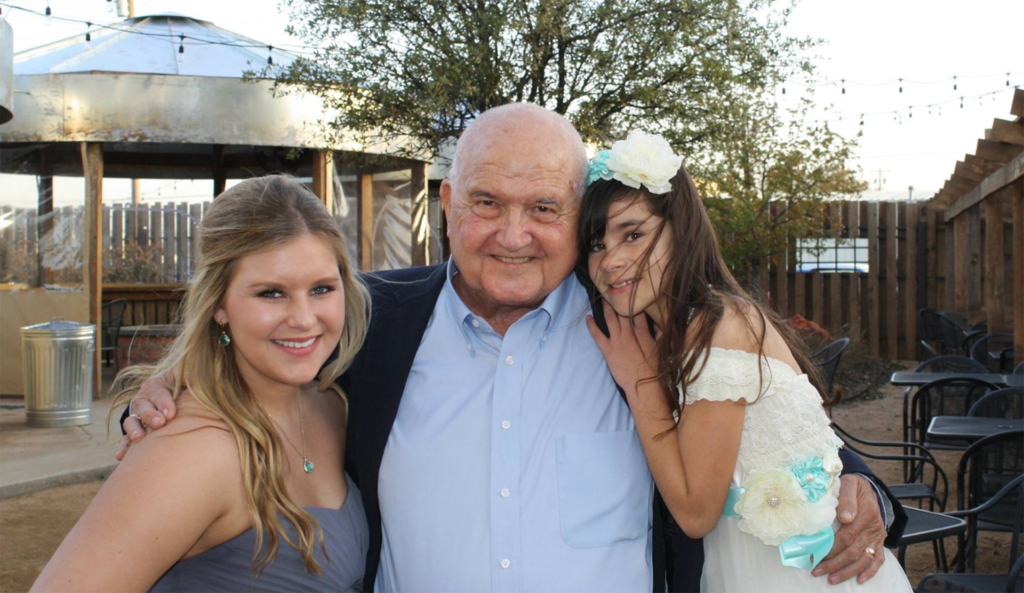
Doyle didn’t have time to mull over the question and besides, he had been down that road before.
“I knew it couldn’t be any worse than the first time,” he said.
Turns out he was right. Doyle was put on the waiting list again, and on May 16, 2006, the call came. The second heart was from an 18-year-old who Doyle and Marilynn believe was killed in a car wreck in Fort Worth. This time the surgery was performed at Medical City Dallas. Pre-op began at 9:30 p.m. May 16. Surgery began at 10:30 p.m. and at 2 a.m. May 17, Doyle was in recovery. Later that same day he was moved to a room, a full day ahead of schedule.
Doyle’s body took the second transplant much better, with little organ rejection. Five days after the transplant, Doyle was dismissed from the hospital to begin a 35-day stay at Staybridge Suites while undergoing rehab. On June 26, the Reeves were back in Abilene.
“We came home and started living again,” Doyle said, “and we’ve had a good time since.”
Living with a New Motor
Fast forward to the spring of 2018, a dozen years after the second transplant. Doyle’s heart is performing beautifully, but a fall while on a trip to Temple resulted in surgery, followed by lengthy rehab. Doyle likens his heart to a new motor in an old car with a transmission that’s slipping and wheels that are wobbly.
“That’s the best thing I’ve got,” he jokes about the heart that came from a teen-ager.
But when Doyle and Marilynn talk about what they’ve been through and reflect on the two young lives that ended, they are serious and introspective.
“We never dreamed we would have a 50th wedding anniversary, that’s for sure,” Marilynn said.
That happy event came on Aug. 24, 2013.
When Doyle isn’t fly fishing or recovering from a broken hip, he might be found on the speaking circuit. He has spoken to classes at Abilene Christian and Hardin-Simmons universities and for the Southwest Transplant Alliance in Dallas.
The Reeves have tried to reach out to the families of both heart donors but haven’t been successful. Years before Doyle’s first transplant, which came in 1988, the couple had signed up to be organ donors themselves.
Through it all, the Reeves, who now are members of Beltway Park Church, have relied on faith – their own and others. They are grateful for the prayers that have sustained them. Doyle could sense something different as Marilynn prayed in his hospital room.
“She would pray,” he said, “and the holy spirit would just fill the room and give us so much peace.”
One day when Marilynn was feeling stressed, the husband of a transplant recipient made a comment that has stuck with her.
“Can you do anything about this?” he asked.
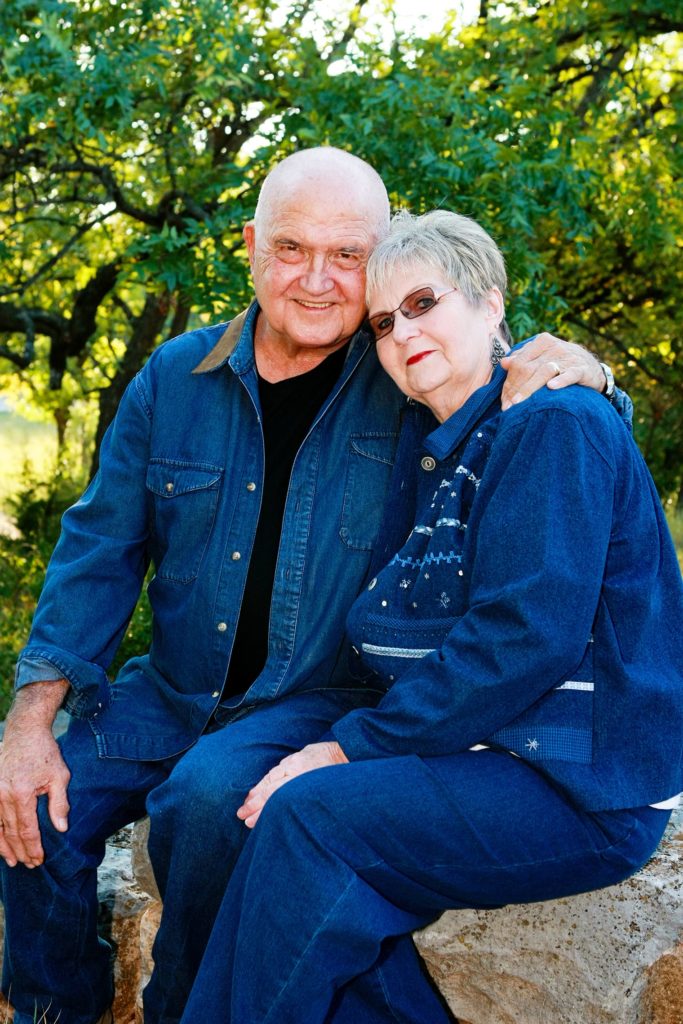
Marilynn acknowledged she couldn’t and felt the stress disappear. Doyle occasionally thinks about the donors who made his life possible and gives thanks to them and their families in his prayers. And, he chose another way of saying thank you, one that he alone could do.
“I just made the best life I could make,” Doyle said.















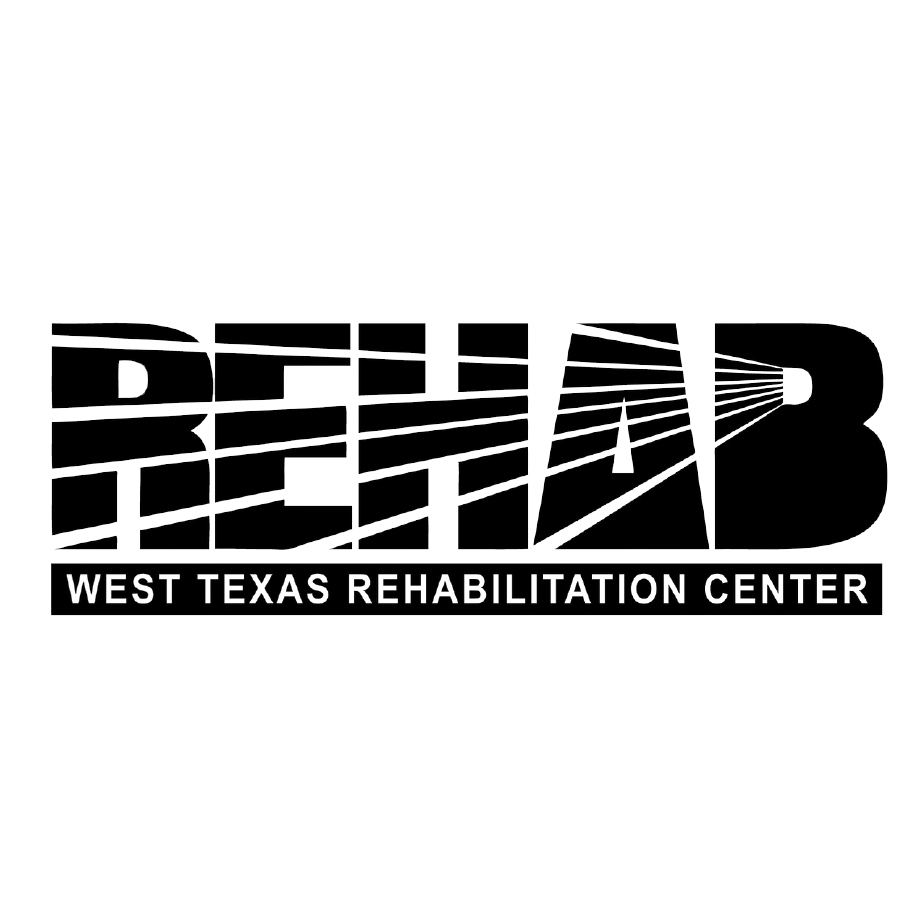










Leave a Reply